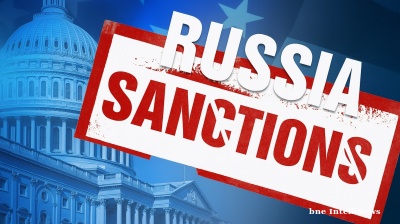Energy analyst Dr Tom O'Donnell has issued a stark critique of the European Union's Green Deal, describing it as a "policy disaster" that requires radical reform to prevent further industrial decline and to bolster energy security.
Speaking at the "Energy Security in Central & Eastern Europe" conference in Warsaw, O'Donnell highlighted significant technological shortcomings within the EU's current all-renewables energy model.
"Several of the stated key technical requirements for the model to succeed have failed," O'Donnell stated, pointing to the lack of universally applicable, long-term, grid-scale storage technology as a critical flaw.
He traced the origins of the EU's Green Deal to the German Energiewende, itself influenced by American physicist Amory Lovins' "Soft Energy Paths" concept from the 1970s.
“In 2019, Dr. Lovins, an American physicist and futurist, was decorated by the German government, recognized as the father, in effect, of the plan that has become the German national energy transition policy. He is also credited with coining the phrase “energy transition”,” Donnell said.
The initial reason for advocating this soft-energy-paths transition had very little to do with climate change. Climate change was a minor issue at the time. Rather, it had to do with how, in order to use hard energy paths, you need big industrial facilities run by big corporations. So, it was said that to undermine these corporations’ power, we have to use only renewables, says Donnell.
At that time in Germany, an anti-big business movement had grown up against the arbitrariness of large project decisions by government and corporations, without any local consultations with citizens that was a backlash against the rapid post-war re-industrialization.
In addition, neo-Malthusian ideas, first popularized by the Club of Rome, had popularized predictions of the extinction of each mineral resource, including oil and gas, as well as another looming overpopulation crisis.
“These deep-seated concerns were the bases of what, in Germany in particular, coalesced into a new movement for replacing so-called “hard energy paths,” fossil fuels and nuclear power, as a path to preserving the environment and killing the economic and social dominance of large corporations,” says Donnell. “Climate change, as an issue, as a driver of this all-renewables program, came along later.”
O'Donnell argued that, despite decades of research and development, essential technologies such as advanced grid-scale storage and smart grids have not materialised at the necessary scale.
Two core ideas of the soft energy paths were smart “mini-grids” and developing effective power storage. Mini-grids are democratic energy, set up to serve a community and run by the community. From the start it was clear the drawback with renewables is the intermittent nature of its energy – there is only power when the sun shines and the wind blows. Smart meters attached to the mini-grid would tell housewives when they can run the washing machine or a factory's machinery. Essentially, communities would sync activity to the weather.
Even then it was clear from the start that in addition is the need for grid storage of power to deal with demand that will inevitably run above renewable energy supply in peak periods of the day and to deal with what the Germans call “Dunkelflaute,” the days when the sun doesn’t shine and winds lull. Battery technology has come a long way in the last forty years, but today it can cope with an hour of poor weather conditions but it is still nowhere near being able to cope with Dunkelflaute at any kind of scale.
Other than batteries the best energy storage technology is pumped storage hydropower that currently accounts for 93% of all grid-scale storage capacity. But pumped storage is only suitable for countries with large mountainous lakes. However, pumped storage is not an option for all the countries between Paris and Moscow on the Great Northern Plain, which is as flat as a pancake.
For all these reasons, Europe remains hooked on Russian gas as the best alternative energy source and the least harmful for the climate. Despite its best efforts to wean itself off Russian gas in the last two years, Russian gas increased its share in the EU energy mix over 2024 from 14% at the start of the year to 21.2% in December.
The 8th Monitoring Report of the Energiewende report that tracks Germany’s progress in the national energy transition program presented to former Chancellor Angela Merkel concluded that Germany cannot produce sufficient renewables on its own territory to satisfy its own demand for power. It will always have to import power, putting increased strain on other EU members that are also struggling to reduce fossil fuel use.
In lieu of sufficient renewable generating capacity last year Robert Habeck, a leader of the Green Party, got emergency parliament funding to install 25GW of new natural gas generation (he actually wanted 36-39GW), roughly equal to 25 big coal plants or 25 big nuclear plants and a de facto abandonment of the “renewables only” policy that has driven German energy transition policy until now.
In desperation, the Merkel government launched a “hydrogen strategy” as an alternative to gas, but as bne IntelliNews reported hydrogen won’t work due to numerous technical problems. To name only one, it can’t be transported as to liquify it, hydrogen needs to be cooled to just 20C over absolute zero, needing an extraordinarily amount of energy to make it that cold. Only helium has a lower liquification point. And as hydrogen atoms are so small, they simply leak through the walls of conventional pipelines, posing a major explosion threat.
The only realistic scalable alternative to natural gas or renewables is nuclear power following France’s Messmer model, argues O’Donnell.
The EU has reversed its policy on nuclear power and now has the political will to develop nuclear power infrastructure after years of favouring renewable energy investments, government and industry officials said during an industry conference in Brussels December 17, S&P Global reports. As part of the changes provoked by the Draghi report, a new business model for EU nuclear energy investments will be rolled out from 2025, including the development of small modular reactors and a potential competitiveness fund, are urgently needed to capitalize on this momentum, the officials added.
Barking up the wrong tree
Since these early days, the mini-grid idea has been abandoned and replaced with the idea of a as large a grid as possible to smooth out the local variants in supply and so smooth supply. Germany’s decision to switch off its six nuclear power plants and becoming a net importer was made possible as EU rules forced its neighbours to export Germany the missing power. Now this winter, countries like Sweden, Norway and the Baltic states have begun to complain heavily after the cost of power in their countries has soared.
"The idea was that you could get rid of all of what Lovins called 'hard energy paths,' that is fossil fuels and nuclear, and replace this with so-called 'soft energy paths,' meaning renewables," Donnell.
O'Donnell warned that the EU's steadfast commitment to an all-renewables strategy, without addressing these technological gaps, is leading to deindustrialisation and undermining energy security.
He cited Germany's recent closure of its last three nuclear power plants during a wartime energy crisis as an example of policy decisions that exacerbate the problem.
"The stance that the new Commission is taking, while focusing on energy and industrial policy, is simply doubling down on old policies, wrong policies which are dangerous," O'Donnell asserted.
He criticised the appointment of Teresa Ribera, a proponent of all-renewable energy systems, as the European Commission's Executive Vice-President in charge of both the Green Deal and industrialisation.
"The fact that [European Commission President Ursula] von der Leyen fought hard to appoint Ribera and then put her in charge... shows that Von der Leyen... has no interest in reform of the renewables model despite its suffering technological failures on several key aspects," O'Donnell remarked. “The problem is, Ms. Ribera is a true believer in all-renewable energy systems, I would say a career-long renewable fundamentalist”
“She’s said to be so good at negotiating that she managed to get the Spanish nuclear industry and civil society to agree on a timetable to close all the Spanish nuclear power plants, and she’s very proud of this,” O’Donnell added.
This misguided policy is condemning Germany and the rest of Europe to deindustrialisation, a process that already started long before the war in Ukraine catalysed it with the 2022 energy crisis. The point was rammed home in great detail by the report by former Italian Prime Minister and ex-European Central Bank boss Mario Draghi that warned Europe has lost its competitive edge and needs to spend €800bn a year to just stand still, or about 4% of Europe’s collective GDP. Finding this amount of money is a daunting prospect for budgets that have already been depleted first by the 2020 pandemic and now by the €100bn a year sent to Kyiv. And all this comes at a time as all of Europe sinks into recession.
“Von der Leyen’s administration has no new ideas on this, and is instead simply changing names of things from “green” to “clean” and doubling down on the technologically failed Green Deal Model, based on the German Energiewende Model,” says O’Donnell. “EU strategy, as Ribera and Von der Leyen repeatedly remind us, is to use green tech development to regain EU competitiveness. But, that battle for Green tech supremacy has already been lost. You know the story vis-à-vis both the USA and especially China… And so, there was, and still is, a wrong theory, a flawed model, and it is now contributing to the deindustrialization of Europe, to its competitive failures.”
The failure to recognise the flaws in the EU’s green transition policies is leading to the deindustrialization of Europe. That in turn presents an acute economic and national security threat for Europe. The German industrial decline will pull everybody else down, especially their Central and Eastern Europe (CEE) and Baltic neighbours simply because it is so big and so important as a market to all its neighbours, O’Donnell argues.
As a solution, O'Donnell advocated for a diversified energy mix that includes nuclear power, citing France's historical success in decarbonising its electricity generation through nuclear energy without the need for new grids or long-term storage technologies.
"The French Messmer plan, which rapidly built nuclear plants, succeeded in decarbonising French electrical generation without any need for new grids or long-term grid-scale storage tech," he noted.
O'Donnell's critique calls for a reassessment of the EU's current energy policies to address technological shortcomings and to consider a more pragmatic approach that ensures both energy security and industrial competitiveness.
Opinion

COMMENT: ANO’s election win to see looser Czech fiscal policy, firmer monetary stance
The victory of the populist, eurosceptic ANO party in Czechia’s parliamentary election on October 6 will likely usher in a looser fiscal stance that supports growth and reinforces the Czech National Bank’s recent hawkish shift.

COMMENT: Ukraine's drone attacks on Russian refineries have probably reduced throughput by 30.4%, less than headline figures suggest
Ukraine has been hitting Russian refineries and caused a fuel crisis that has spead across multiple regions. The headline figure is that oil refining has been reduced by 38% since August, but digging into it and the reduction is likely less.

MACRO ADVISORY: The unintended consequences of Western sanctions
Since 2014, Western nations have hit Russia with a total of 26,655 sanctions (to mid-September 2025), with 23,960 coming after February 2022. The largest target group, with 13,611 sanctions, is state officials, business owners, and oligarchs.

PANNIER: Few will mourn passing of Turkmen Iron Lady Atajanova and Uzbek Grey Cardinal Jurabekov
Their deaths seem to have been conveniently overlooked for the most part by the authorities of today.
_Cropped_1759411324.jpg)



